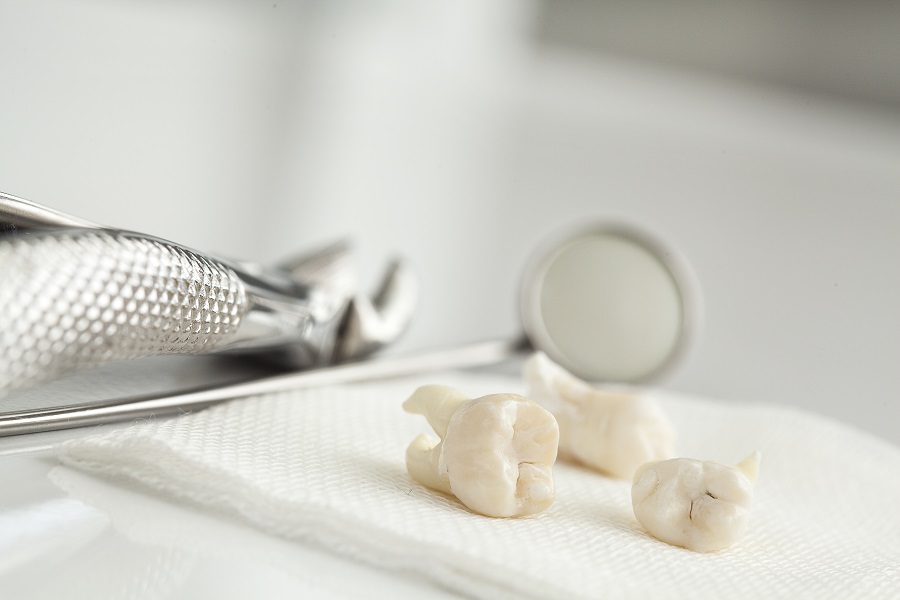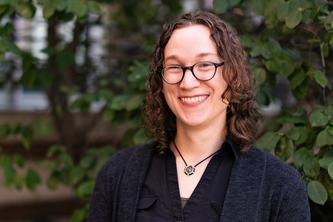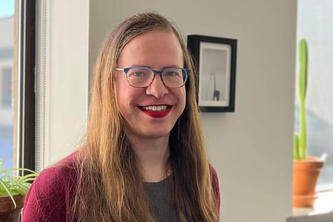
Every year, an estimated five million people in the United States have their wisdom teeth surgically removed. Most dentists begin to discuss wisdom teeth removal in mid-to-late adolescence, making it important to stay informed on the topic for yourself and any young people in your life.
James Swift, a professor in the University of Minnesota School of Dentistry, explains wisdom teeth, why they’re often removed and what to know about removal.
Q: What are wisdom teeth? What purpose do they serve?
Dr. Swift: Wisdom teeth — also called third molars — are the furthest back teeth in the row of teeth that extend from the center of your mouth. They are considered molar teeth and are flat on the surface just like your first molars and second molars. They are part of the grinding function of back teeth, compared to the incisors in the front of your mouth, which provide a cutting function when chewing food.
Q: Are wisdom teeth always removed?
Dr. Swift: Not everyone needs to get their wisdom teeth removed. In some people, wisdom teeth come in — or “erupt” — fully and are functional. However, many wisdom teeth that come in and are not removed from the jaw bone either partially erupt, remain beneath the gum tissue or stay beneath the bone, which we then classify as “impacted.” If wisdom teeth partially erupt, they may harbor bacteria in the mouth and may become affected by gum disease or cavities because they are not fully exposed. Some people may also experience pain and discomfort in their jaw and gums as the teeth come in.
Q: How do you know if wisdom teeth need to be removed?
Dr. Swift: Dentists typically begin to address wisdom teeth during a patient’s late teenage years. You can ask your dentist to evaluate your wisdom teeth during a regular check-up, where they will look for the presence of periodontal disease around the third and second molars. Dentists often refer patients to receive x-rays to identify the internal appearance of wisdom teeth and their place in the mouth and jaw. Patients should always report new pain or discomfort in the area to their dentists, as it can be linked to emerging wisdom teeth.
A person may not need to have their wisdom teeth removed if it’s possible to maintain good oral hygiene. If this is the case, your dentist should continue to perform checks for the health of your wisdom teeth on all following dental visits.
Q: What should people know about the removal process?
Dr. Swift: The removal of wisdom teeth is considered a minor surgical procedure and nearly always done in an outpatient setting. All four wisdom teeth may be removed in one visit, and the procedure generally takes under an hour. Patients receive anesthetic and may choose a sedative rather than local anesthetic to sleep through the procedure.
The healing process can take up to two weeks. Patients will likely see some swelling and/or bruising after the procedure, and there may be some residual blood in the mouth immediately following the procedure as it clots. Some patients will have stitches in their mouth, which may dissolve during the healing process or require removal by a dentist. Pain medication will be discussed with your dentist.
Q: How are you advancing oral surgery knowledge at the U of M?
Dr. Swift: Throughout my career, I have been involved in efforts to standardize practices for dentists around third molar removal, ensuring all practitioners complete a thorough evaluation to determine the necessity of removal for each patient. I have also researched pain management for third molar removal, focused on reducing pain and discomfort resulting from extraction. As both a professor and a practicing oral and maxillofacial surgeon, I work every day to improve care directly for our patients and educate the next generation of providers in the classroom.
James Q. Swift, DDS, is a professor in the Division of Oral and Maxillofacial Surgery at the University of Minnesota School of Dentistry. He is a graduate of Cornell College and the University of Iowa College of Dentistry, and completed a general practice residency at Oklahoma Children’s Memorial Hospital and University of Oklahoma Health Sciences Center. He has served on two cleft palate/craniofacial teams during his career, and has received an RO1 award from the National Institute of Dental Research to study inflammatory mediators and pain management. He has also performed clinical research in the area of temporomandibular disorders and inflammatory mediators of the temporomandibular joint space, and has acted as principal investigator on implant research which included pre-market approval studies for a number of implant systems. Dr. Swift practices full scope oral and maxillofacial surgery in the Twin Cities area.
-30-
About the School of Dentistry
The University of Minnesota School of Dentistry advances health through scientific discovery, innovative education and the highest-quality care for all communities. As the state's only dental school, the School of Dentistry educates the next generation of oral health professionals and is a resource to five states for dental education and consultation. Of Minnesota’s practicing dentists, 72 percent are graduates of the dental school. Through its clinics, the School of Dentistry also sees more than 156,000 patient visits each year. Learn more at dentistry.umn.edu.
About “Talking...with U of M”
“Talking...with U of M” is a resource whereby University of Minnesota faculty answer questions on current and other topics of general interest. Feel free to republish this content. If you would like to schedule an interview with the faculty member or have topics you’d like the University of Minnesota to explore for future “Talking...with U of M,” please contact University Public Relations at [email protected].





